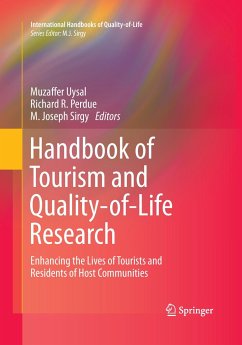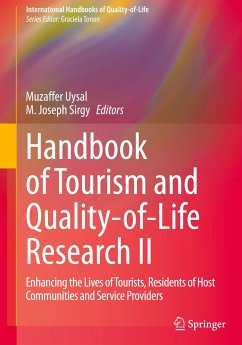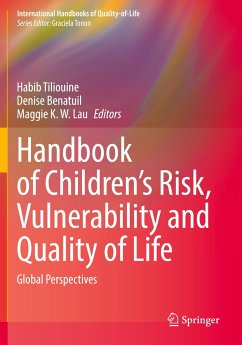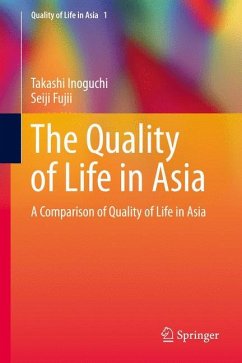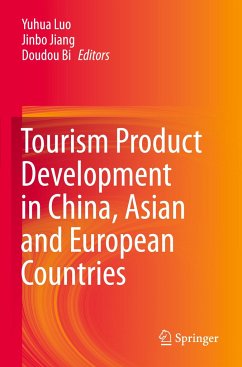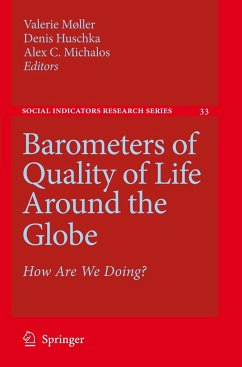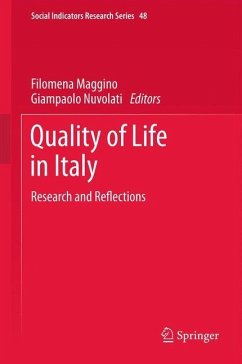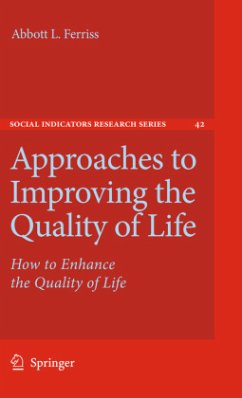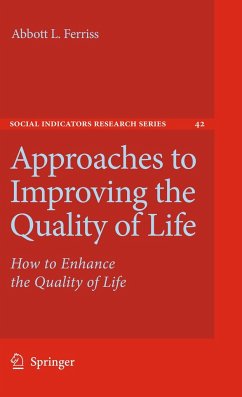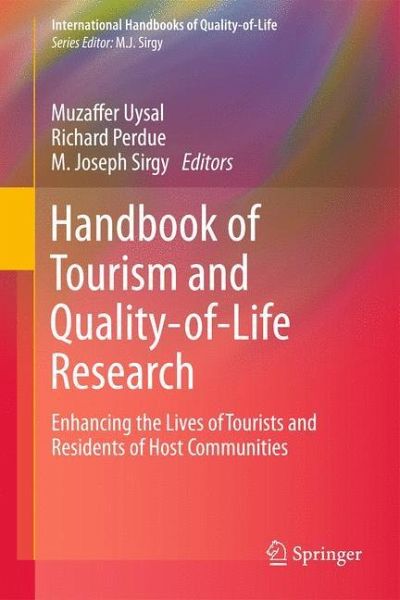
Handbook of Tourism and Quality-of-Life Research
Enhancing the Lives of Tourists and Residents of Host Communities
Herausgegeben: Uysal, Muzaffer; Perdue, Richard; Sirgy, M. Joseph

PAYBACK Punkte
116 °P sammeln!
Quality of life (QOL) research in tourism has gained much momentum over the last two decades. Academics working in this area research issues related to tourists and host communities. Practitioners are becoming increasingly interested in understanding the science that allows them to develop better marketing and managerial programs designed to enhance the quality of life of tourists. Tourism bureaus and government agencies are increasingly interested in issues of sustainable tourism, specifically in understanding and measuring the impact of tourism on the quality of life of the residents of the ...
Quality of life (QOL) research in tourism has gained much momentum over the last two decades. Academics working in this area research issues related to tourists and host communities. Practitioners are becoming increasingly interested in understanding the science that allows them to develop better marketing and managerial programs designed to enhance the quality of life of tourists. Tourism bureaus and government agencies are increasingly interested in issues of sustainable tourism, specifically in understanding and measuring the impact of tourism on the quality of life of the residents of the host communities. This handbook covers all relevant topics and is divided into two parts: research relating to travelers/tourists, and research relating to the residents of host communities. It is the only state-of-the-art reference book in its field and will prove invaluable to academics interested in QOL research, as well as tourism practitioners interested in applying the science of QOL in the tourism industry.





